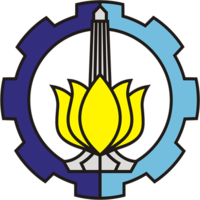Tunes Of Development: An Alternative Lens To Analyse Development (Study Case: Navicula Band Addresses Environmental And Social Problems In Indonesia)
Abstract
This study aims to describe an alternative approach to analyse development issues by using popular culture as the lens of analysis. Through the analysis of tunes of development, this study argues development should be measured not only through the conventional way of measuring development by economic indicators, primarily measuring GDP (Gross Domestic Products), but also considering culture aspect to achieve a comprehensive measuring of development. Using study case of Navicula Band in its efforts to address environmental and social problems in Indonesia, this study shows an overview about the key to comprehensive development by analysing the society and its culture. This study used qualitative research method and literature review as the data collection technic
Keywords
Full Text:
PDFReferences
Brockington, D. (2014) “The Production and Construction of Celebrity Advocacy in International Development”, Third World Quarterly, 35: 1, 88-108, DOI:10.1080/01436597.2014.868987.
Dankoff, J. (2011) “Toward a Development Discourse Inclusive of Music”, Alternatives: Global, Local, Political, 36(3), 257-269. Accessed 30 December 2018
Elliot, D.J. (1995) Music Matters: A New Philosophy of Music Education. New York: Oxford University Press
Gamson,W.A. (1991) “Commitment and Agency in Social Movements”, Sociological Forum 6(1):27‐50.
Gregory, A.H. (1997) The Roles of Music in Society: The Ethnomusicological Perspective, in The Social Psychology of Music, ed. David Hargreaves and Adrian C. North. Oxford: Oxford University Press.
Kartomi, M. J. (2010) “Debates and Impressions of Change and Continuity in Indonesia's Musical Arts Since the Fall of Suharto, 1998-2002,” Islam in Southeast Asia, 378-413.
Lewis, D., Rodgers, D., & Woolcock, M. (2014) Popular Representations of Development: Insights from novels, films, television and social media. London, New York: Routledge
Lockard, C. A. (1998) Dance of life: Popular music and politics in Southeast Asia. Honolulu: University of Hawai’i Press.
Maratea, R. J., & Monahan, B. (2016) Social Problems in Popular Culture. Bristol: Policy Press.
Mardiah, S.S. (2014) “Perkembangan Band Indie di Indonesia”, Jumpa Online, Accessed 30 December 2018
Matthews, S. (2004). Post-development theory and the question of alternatives: a view from Africa. Third world quarterly, 25(2), 373-384.
Moore, R.E. (2011) ““Politrick(s)”and “Medical Mafia”: Rock and Social Justice in Indonesia”, Conference of the International Association for the Study of Popular Music, Australia/New Zealand. Accessed 30 December 2018
Moore, R.E. (2012) “Rock Music and Social Activism on the Internet “Inside Indonesia” Accessed 30 December 2018
Navicula (2018). About Band. Accessed 30 December 2018
Polanyi, K. (2001). The Great Transformation. The Political and Economic Origins of Our Times, 2nd ed. Boston: Beacon Press.
Wallach, J. (2002) Modern Noise and Ethnic Accents: Indonesian Popular Music in the Era of Reformasi, Philadelphia: University of Pennsylvania.
DOI: http://dx.doi.org/10.12962%2Fj29649714.v1i2.15326
Refbacks
- There are currently no refbacks.
